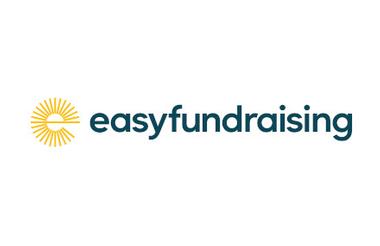The Charity Commission is reviewing information regarding Easyfundraising to determine whether there is a role for the regulator.
This comes amid a legal dispute between the fundraising platform and easyGroup, with a court case beginning on 14 June.
easyGroup previously launched legal action against Easyfundraising for having “easy” in its name, alleging it is infringing intellectual property rights.
In a letter sent to the Commission in March, easyGroup founder Stelios Haji-Ioannou also alleged that Easyfundraising’s owner and chief executive “have engaged in the past in activities of significant concern from a charity law and regulatory perspective”.
The regulator confirmed to Civil Society that it received a letter raising concerns about the fundraising platform and is “currently reviewing the information available to us to determine if there is a role for the Commission”.
Easyfundraising chief executive James Moir said the company provided a detailed response to questions posed by the Commission and will continue to answer any additional enquiries it may have.
Court case
In its legal case, easyGroup claims that Easyfundraising has infringed a number of its trademarks, according to a trial skeleton argument.
The document says that easyGroup began proceedings in February 2022, and this is not the first time Haji-Ioannou has claimed that every “easy” mark is distinctive of easyGroup, a position that has been “consistently rejected by various courts and trademark offices”.
It adds easyGroup “has chosen on more than one occasion to discontinue proceedings shortly before trial” and persuaded defendants in many other cases to sell the rights in the brand they were using to easyGroup and/or join its easy family of brands, rather than continue to spend its resources defending litigation.
“[It’s] only able to continue to bring so many ill-advised claims because it has a litigation fund worth £3m annually. The fund is financed by [its] licensees as part of the licence agreements and the vast majority is provided by easyJet, [easyGroup]’s largest licensee.”
The document argues that the word “easy” is common in English and therefore cannot and should not be monopolised.
It concludes that easyGroup’s claims are fundamentally unmeritorious because the services Easyfundrasing provides are not similar to those in relation to which easyGroup’s marks are registered.
Commission assessing information
In April, the Commission wrote to Moir, saying it had “been made aware of concerns about the operation of the company as a professional fundraiser and in relation to charitable funds that may be held on trust by Easyfundraising Ltd for charities, and damage to public trust and confidence”.
It asked Moir to answer questions relating to Easyfundraising’s practice of holding funds, potentially misleading information and requirements of the Charities Act 1992.
For instance, on potentially misleading information, the regulator said it had reviewed the company’s website which states that Easyfundraising is a for-profit, private company.
However, “there are also statements which could be seen as misleading, including that ‘Easyfundraising is the UK’s biggest charity shopping site’”.
“Please provide an explanation as to why the company’s website lacks clarity and transparency resulting in potentially misleading information being communicated to supporters,” the regulator wrote in its letter.
Easyfundraising: ‘We act ethically’
In response, Moir said: “While thousands of charities and causes benefit thanks to our inclusive platform, at no point has Easyfundraising ever claimed to be a charity or to only support registered charities.
“We’re a technology for good company that’s striving to bring innovation to the sector to help good causes to raise critical funds, for free.
“It’s important to recognise the unique way in which supporters can raise free donations through our platform. All donations are funded by our retail partners, in exchange for our supporters shopping with them, via our platform.
“As a result, we recognise that we don’t fit the typical profile of a professional fundraiser but we continue to act ethically and in accordance with fundraising principles and applicable charity law.
“Many other for-profit companies and organisations are subject to the same rules, and we value the controls these bring to maintain high standards and trust in the fundraising sector.
“We have provided a detailed response to the questions posed by the Charity Commission and will continue to support any additional enquiries they have. The caseworker is working through our response and so we cannot share any further details at this time.”
Related articles










